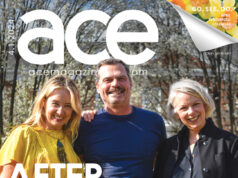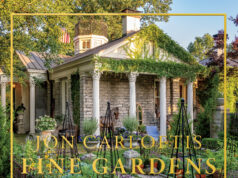[three_fifth]
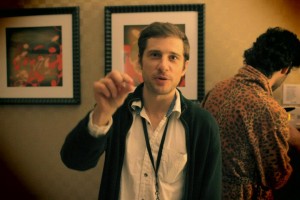

“Every time I saw a celebrity I took an animated GIF (basically a moving picture). I knew some of them, like Casey Affleck and Rooney Mara. Pauly Shore and Emile Hirsch were the least receptive. I was planning on getting more but once I got Paris Hilton, I couldn’t imagine topping that. It was very clear the moment I got Paris, my project was over.”
Audley, née Andrew Nenninger, grew up in Lexington, attending Mary Queen and then Lexington 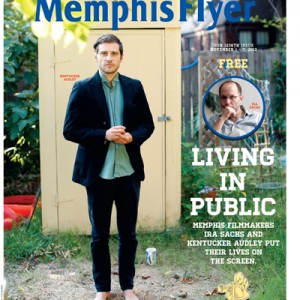

Audley moved to attend University of Memphis, “fell in with a film scene and stuck around.” He was on the cover of the Memphis Flyer, their alt-weekly, in 2012. He’s “micro-famous.”
“I like Memphis,” he says. “It’s not a place that really cares about success, certainly not ‘micro-success.’ I’ve always struggled to make money as a filmmaker. I’m 31 and I’m just barely starting to make it. I’ve worked jobs outside the industry for years. Memphis has been the right place to grind it out and live cheaply and under-the-radar.”
The DIY film community he works in includes Lowery and Lena Dunham. He says, “We learned to do everything ourselves – cinematography, editing, acting, et al – because we didn’t have access to professional crew or actors. People like Lena Dunham, Amy Seimetz and Joe Swanberg are all filmmakers that came up in this system. We’ve all worked on each other’s films in various capacities out of necessity.”
He made Open Five 2 “initially for $12,000 but it ended up being a couple thousand more because we reshot several times.” It’s part of a mumblecore-ish series he’s been working on for the past five years. “The first film we raised our budget through crowdfunding, and the sequel was made with personal money…The idea is to slightly fictionalize the life of a group of my friends. Most of the films are either direct recreations of past experiences or actual documentary footage….basically low-key relationship dramas with highly naturalistic performances and minimal plot.”
Does a breakout like Girls make it easier or harder on other 20-somethings who might be making their own Tiny Furniture right now?
“I think certain people are just prime to be public figures. From the minute I met Lena, I knew she was gonna be famous,” he says. “She’s just incredibly charismatic and funny and has a real interest in pop culture. I don’t think we’ll see a similar breakout for a long time.”
He left Lexington in 2000, “before the digital film revolution launched film scenes all over the country.” His mother and two of his sisters still live here. His movie Open Five 2 was shot in NYC, Memphis, New Orleans, and four days in Lexington, “mostly in my mom’s old house in the Firebrook neighborhood. We also filmed at Al’s Bar and The Box Stop on Lansdowne Drive.”
“I visit 3 or 4 times a year. I’ve also been back for film stuff. My last film Open Five screened at the Kentucky Theater (via the Boomslang Festival) which was amazing because I grew up going to the Kentucky and it’s one of my favorite theaters in the world.”
Like Lexington’s wildly popular web series, Girl Girl Scene, his movie was made for the web. That “just means we weren’t focused on getting into film festivals or distributed into theaters. We wanted to make an unconventional film and the only real home for such is the internet. And now there are so many devices (Roku, Apple TV, any gaming system) that bring the internet to your TV, it’s an easy decision for a small film to go straight online.”
Recognizing that, in 2011, he created the website NoBudge films, where he posts and showcases indie films. It isn’t monetized, and he primarily earns his living as an actor at the moment. “I’m just trying to fill a need right now for indie films. A site that only focuses on small films and gives unknown filmmakers a credible place to premiere their film online.”
Kentucky native Brandon Colvin’s new film, FRAMES, premiered this week on NoBudge. Colvin says his minimalist meta-mystery “was all about becoming part of a filmmaking community, honing our skills, and meeting people. Considering those goals, NoBudge is totally perfect for us. Kentucker’s website is a hub for truly independent filmmakers and being featured on the site alongside films by Kentucker, Joe Swanberg, and Todd Rohal – not to mention Frank V. Ross, David Lowery, and others who have had films featured on the site as limited engagements – is a huge honor. The visibility for the film and the feedback we’ve received thanks to NoBudge’s support have been amazing. We always wanted FRAMES to have a home, somewhere it belonged. Now it does.”
But without further ado, the project-topping Paris:
Click to subscribe to the Ace e-dition (delivered to your inbox every Thursday), and stay tuned for more Lexpatriate profiles.
[/three_fifth]
[two_fifth_last]
New on NoBudge Films:
Brandon Colvin’s Frames
Kentucky native Brandon Colvin was born in Paintsville. “My stepdad was a coal miner, and I lived in a holler until I was 10. Then my parents got divorced, and we move to Morehead, which gave me access to way more cultural opportunities and a really great public school education. I still remember checking out Godard films from the Morehead State University library in high school and having my mind blown.”
“A couple of movie-savvy older kids exposed me to stuff like Eraserhead, Boogie Nights, and Reservoir Dogs, which was the first time I became aware that movies were art. It was an earth-shattering experience. From that moment on, I really immersed myself in Kubrick, Fellini, P.T. Anderson, the French New Wave, Bergman – all of those films. I began watching movies non-stop. I’m not sure I ever aspired to be part of a scene. I just wanted to make the movies I could see in my head into something physical and real. I wanted to do it without compromise and without pandering, just like the filmmakers I admired.”
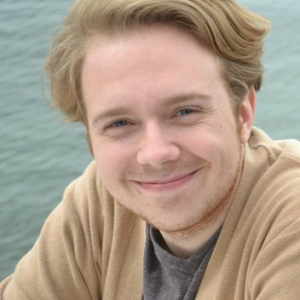


From there, he went West. “I wanted to study film in college, in an academic sense, mostly, and I wanted to do it for free, so I stayed in-state and went to Western Kentucky University.” That’s where Frameshad its genesis. ” The film began as a project in my capstone creative writing workshop at Western Kentucky University. I was tasked by my professor, the poet Tom Hunley, to combine a number of randomly-chosen disparate elements into a single work – sort of like creating a dish from a vague ingredients list.” He says WKU professor Ted Hovet remains an “amazing mentor and constant source of encouragement.”
He’s now a PhD student at University of Wisconsin in Madison, “one of the two or three best places for academic film studies in the world (David Bordwell and Kristin Thompson helped establish it as a high profile grad program in the 1980s and 90s). The program’s focus is on film history and rigorous formal analysis. So, that’s where I wanted to go. I’ve always wanted to make films, but being an academic is the way I expect to make a living (and, it’s really fun).”
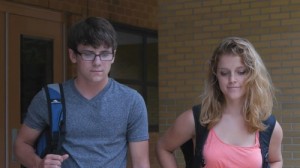

He’s candid about one of the less than positive film festival experiences at Louisville’s Derby City, characterizing it as, “actually a bit of a nightmare.” He says, ” The film was screened on a mediocre TV in a basement. I even had to stop the film after 30 seconds because the technicians had it playing in the wrong aspect ratio. It was somewhat embarrassing because I had tons of family and friends there for the screening. I’m not surprised that festival folded.” Later festivals were better, but he admits the movie is polarizing. “We’ve always had a mixed audience response, because the movie is very unconventional. Some people totally latch onto it and love it. Others grumble or walk out.”
This summer, he’s shooting his second film, SABBATICAL, with a goal of getting it to 2014 festivals. Then it will be time to buckle down on the dissertation and work on the next screenplay. Longterm, he wants to work in academia, “maybe in Kentucky, teaching film studies and film production classes, while continuing to make my own films.”
Click to subscribe to the Ace e-dition (delivered to your inbox every Thursday), and stay tuned for more Lexpatriate profiles.
[/two_fifth_last]







